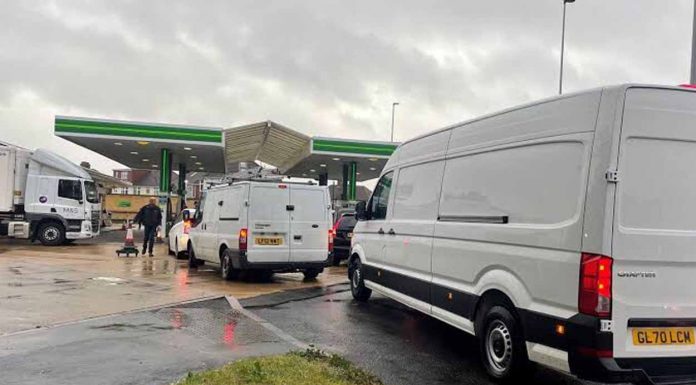Causing major embarrassment to the ruling dispensation in Britain, the national UK government has announced to temporarily suspend the rules under its Competition Act to allow fuel companies to address a supply crisis.
The move, a total U-turn from the earlier policy announced by the British government, that created a state of panic in the country resulting in long queues at several petrol stations across the country, now look to prioritise the fuel supply.
Known as the Downstream Oil Protocol, the step will allow the government to work with fuel producers, suppliers, hauliers and retailers to ensure that disruption is minimised as far as possible.
The new measure announced will make it easier for the fuel industry to share information so that they can more easily prioritise the delivery of fuel to the parts of the country and strategic locations that are most in need.
“We have long-standing contingency plans in place to work with industry so that fuel supplies can be maintained and deliveries can still be made in the event of a serious disruption,” UK Business Secretary Kwasi Kwarteng said.
According to Kwarteng, the country has plenty of fuel refineries. “While there has always been and continues to be plenty of fuel at refineries and terminals, we are aware that there have been some issues with supply chains. This is why we will enact the Downstream Oil Protocol to ensure the industry can share vital information and work together more effectively to ensure disruption is minimised,” he said.
The decision follows a package of measures over the weekend in an effort to ease supply chain pressures, which the government's Department for Business, Energy and Industrial Strategy (BEIS) says is brought on by the pandemic and the global economy rebounding around the world.
These include an immediate increase in heavy goods vehicle (HGV) testing, short-term visas for HGV drivers and new skills boot camps to train up to 3,000 more people to become HGV drivers.
The Opposition has blamed Brexit for the supply crisis, which has seen shortages of food items and also triggered panic buying of fuel up and down the country and long queues at petrol stations.
“There are other problems as well, an ageing workforce, problems with the pandemic. But when you cut off a supply of labour which we did when we left the European Union then you are of course contributing and adding to problems,” Rachel Reeves, the Labour Party's shadow chancellor, said on the sidelines of the party's annual conference in Brighton.
A shortage of truck drivers has caused problems for a range of industries in recent months, from supermarkets to fast-food chains.











